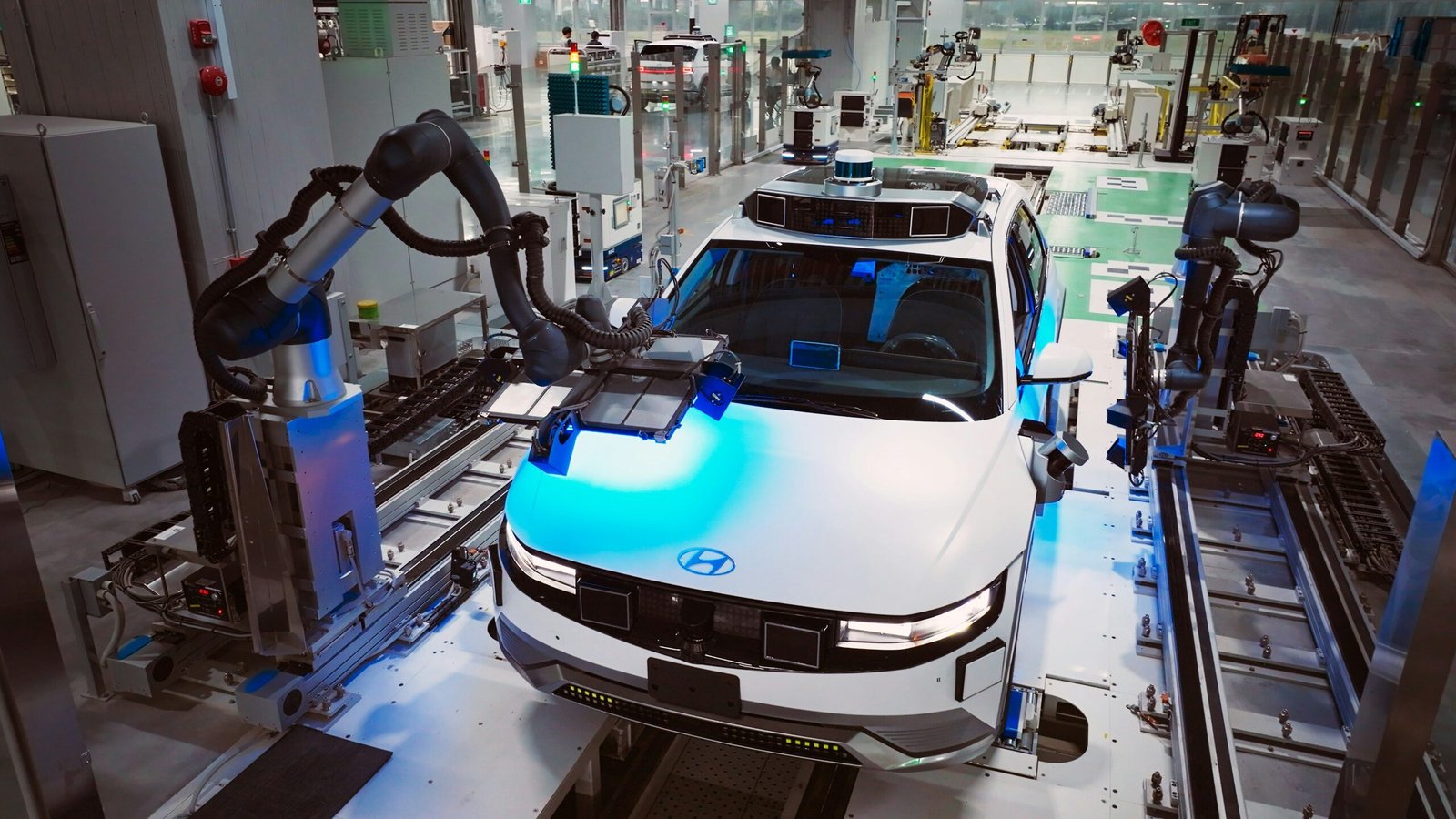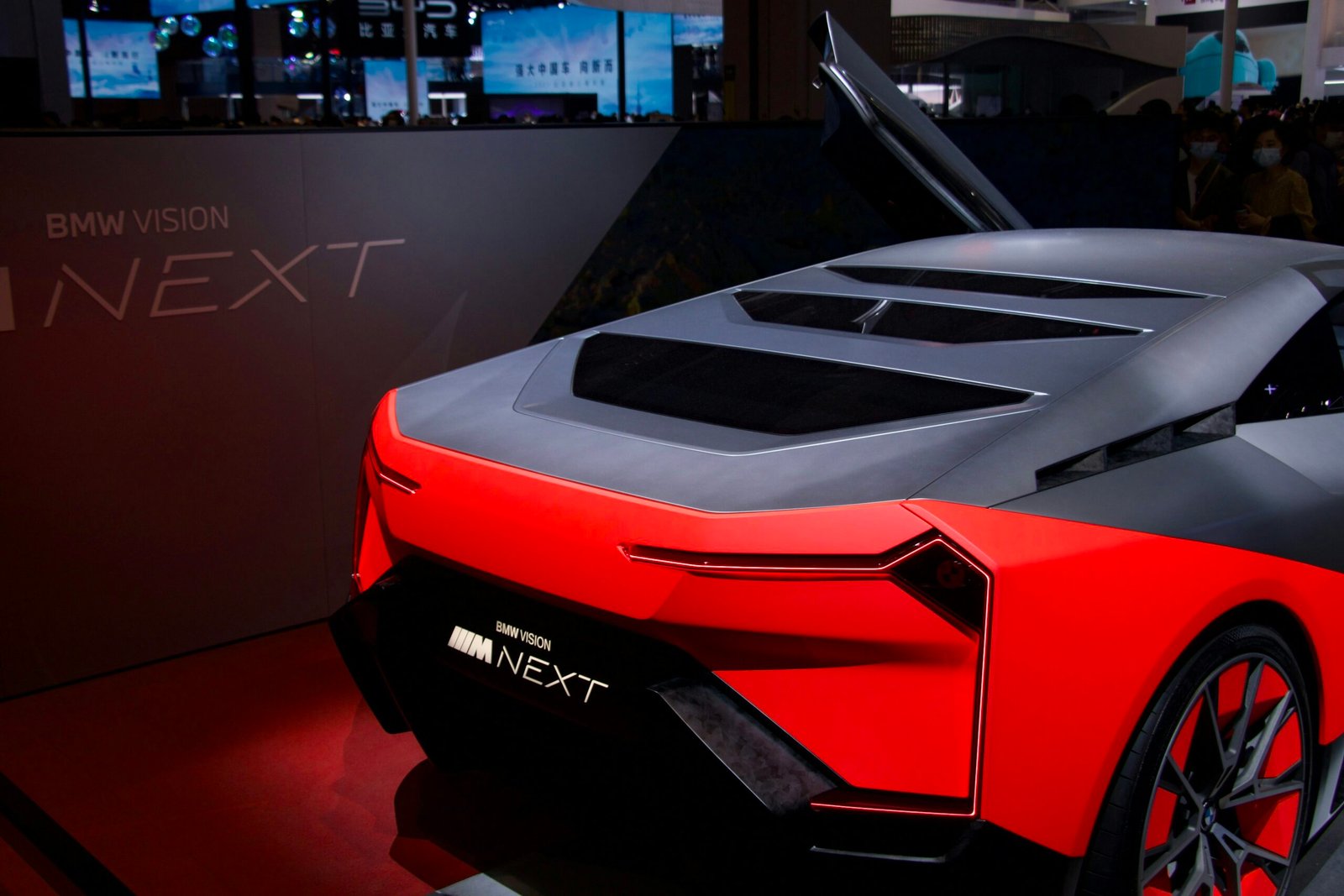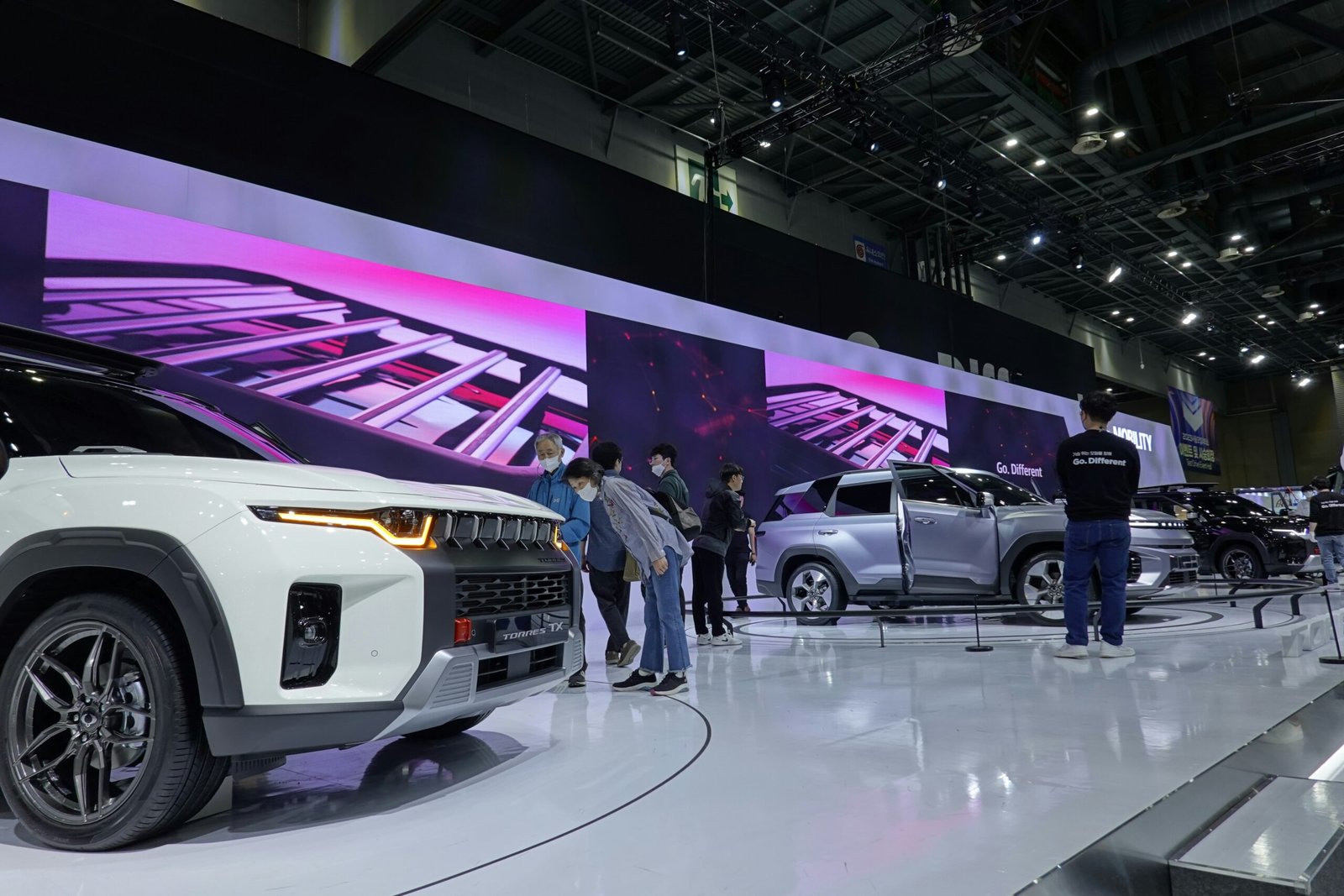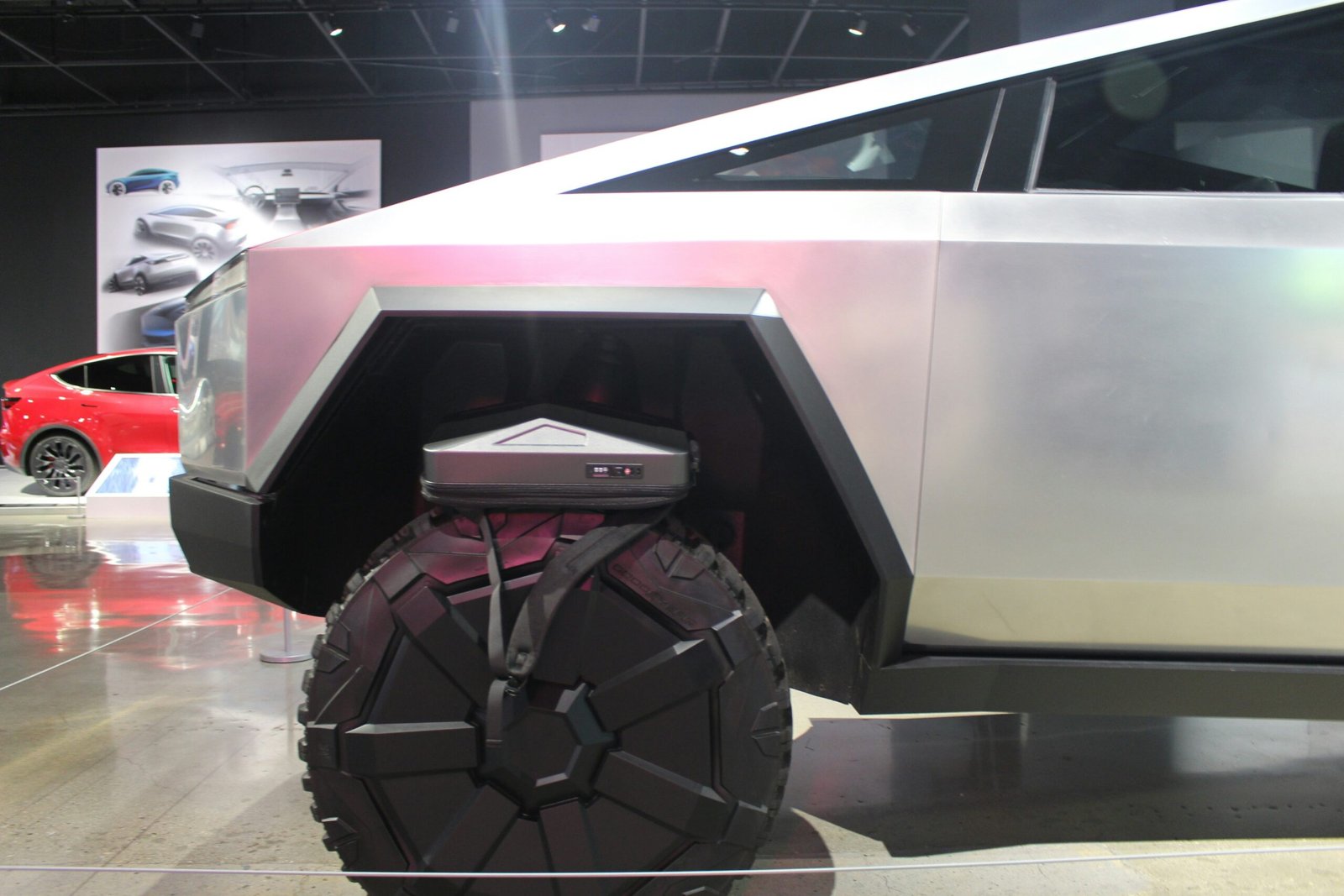Introduction to AI in Automotive Manufacturing
The automotive manufacturing industry is undergoing a significant transformation, largely driven by advancements in artificial intelligence (AI). In a sector that is traditionally characterized by its complexity and the continuous demand for efficiency, manufacturers are increasingly looking to AI technologies to address several pressing challenges. These challenges encompass cost efficiency, production speed, and quality control, all of which are crucial for maintaining competitiveness in a rapidly evolving global market.
The current landscape of the automotive industry reveals a persistent struggle with balancing production costs while ensuring high-quality outputs. Manufacturers are frequently faced with the dilemma of allocating resources effectively to enhance productivity without compromising on product excellence. The integration of AI into manufacturing workflows presents a promising solution to these challenges. By leveraging machine learning algorithms and data analytics, manufacturers can optimize their operations, streamline processes, and make informed decisions that enhance overall production efficiency.
Moreover, AI technologies facilitate enhanced quality control by enabling real-time monitoring of the production line. Advanced image recognition systems can detect defects at early stages, allowing for timely interventions to prevent the production of substandard vehicles. This not only improves product quality but also reduces waste, contributing to sustainability goals that are becoming increasingly important in today’s automotive landscape.
As automotive manufacturers embrace digital transformation, the role of AI is becoming increasingly pivotal. By automating various aspects of the production process and enabling data-driven decision-making, AI integration fosters innovative practices that can reshape workflows. This introduction sets the stage for a deeper exploration of the transformative impact of AI in automotive manufacturing, detailing how it not only addresses existing challenges but also paves the way for future innovations in the industry.
AI Technologies Revolutionizing Manufacturing Workflows
The automotive manufacturing industry is undergoing a significant transformation, driven by the integration of advanced artificial intelligence (AI) technologies. Machine learning, computer vision, and robotics are at the forefront of this evolution, enhancing operational efficiency and product quality across the manufacturing workflow.
Machine learning, a subset of AI, plays a pivotal role in predictive maintenance within automotive plants. By analyzing historical data and identifying patterns, machine learning algorithms can forecast equipment failures and maintenance needs before they occur. This proactive approach minimizes downtime and reduces costly repair interventions. For instance, General Motors has successfully implemented machine learning models that examine machinery performance, significantly lowering unexpected shutdowns and ensuring smoother production processes.
Computer vision is another transformative AI technology, particularly instrumental in quality assurance. Utilizing high-resolution cameras and sophisticated image processing algorithms, this technology enables real-time inspection of components and assemblies. By detecting defects such as scratches, misalignments, or irregular shapes on production lines, computer vision systems enhance the overall quality and consistency of automotive products. A notable example is BMW, which employs computer vision systems to inspect nearly every vehicle part during the manufacturing process, ensuring adherence to stringent quality standards.
Robotics, bolstered by AI algorithms, has revolutionized automated assembly lines. Robots equipped with AI can adapt to various tasks, learning and optimizing their performance in real-time. This flexibility not only increases productivity but also allows for the efficient handling of complex assemblies. Manufacturers like Toyota have embraced AI-powered robotics, allowing for seamless integration of human and machine labor, defining a new era in production capability.
As AI technologies such as machine learning, computer vision, and robotics continue to evolve, the automotive manufacturing sector stands to benefit from increased efficiency, enhanced quality, and a transformative workflow that aligns with the demands of a rapidly changing market.
Benefits of AI Integration in Manufacturing Processes
The integration of artificial intelligence (AI) into automotive manufacturing processes presents numerous advantages that significantly alter the landscape of the industry. One of the most notable benefits is the enhancement of efficiency and productivity. AI technologies enable manufacturers to automate repetitive tasks, allowing human workers to focus on more complex and value-added activities. For instance, AI-driven robots can execute assembly line operations with precision and speed, which in turn leads to the optimization of production timelines and an overall increase in output.
Moreover, the introduction of AI into workflow management helps to reduce operational costs. By utilizing predictive maintenance, AI systems can forecast machine failures and schedule timely repairs, preventing costly downtime. This proactive approach to equipment management not only saves money but also safeguards the continuity of production. Additionally, AI analytics tools analyze vast amounts of data in real-time, identifying inefficiencies within the workflow that can be addressed, thereby further minimizing unnecessary expenses.
Another crucial benefit is the improvement in product quality that AI brings to the manufacturing process. AI algorithms can detect defects or inconsistencies with a level of detail that may surpass human capabilities. This ability to monitor quality control closely ensures that only products that meet stringent standards are shipped to customers. As a result, manufacturers can significantly reduce returns and improve their reputation among consumers.
Furthermore, the use of AI empowers manufacturers to predict and mitigate issues before they escalate. Through advanced data analysis, AI solutions can identify patterns that indicate potential problems in the production process, allowing preemptive action to be taken. This foresight is invaluable in maintaining smooth operations in an industry that is continually evolving. Overall, the benefits of integrating AI into manufacturing processes are profound, equipping automotive manufacturers with the tools they need to remain competitive in a dynamic landscape.
Challenges and Future Directions for AI in Automotive Manufacturing
The integration of artificial intelligence (AI) in automotive manufacturing presents several challenges that must be addressed for successful implementation. One primary concern is data security. As manufacturers increasingly rely on connected systems and data-driven solutions, they become vulnerable to cyber threats. Protecting sensitive information and ensuring secure communication between devices is critical to building trust in AI applications within the automotive sector.
Another significant challenge is the need for skilled labor. While AI technologies can automate various processes, they also require personnel who are familiar with AI systems to oversee operations, interpret results, and manage machine-learning algorithms. The current skills gap raises the question of how manufacturers will equip their workforce with the necessary expertise to adapt to these new technologies. Continuous training programs and educational partnerships will be essential in bridging this gap and ensuring a workforce equipped for the future.
The high costs of implementing AI systems also pose hurdles for many manufacturers. Investment in AI requires substantial financial resources, and smaller companies may struggle to allocate funds for these technologies. However, the long-term cost savings and efficiency gains that AI can deliver may justify the initial expenses. As technology matures, we can expect these costs to decrease, enabling broader adoption across the industry.
Looking ahead, emerging trends such as machine learning, predictive analytics, and the Internet of Things (IoT) have the potential to further transform workflows in automotive manufacturing. These technologies will enhance operational efficiencies and improve decision-making processes. As manufacturers continue to face evolving industry demands, maintaining an adaptive and innovative approach will be vital. Embracing these trends allows for continual improvement and a more resilient production environment.










